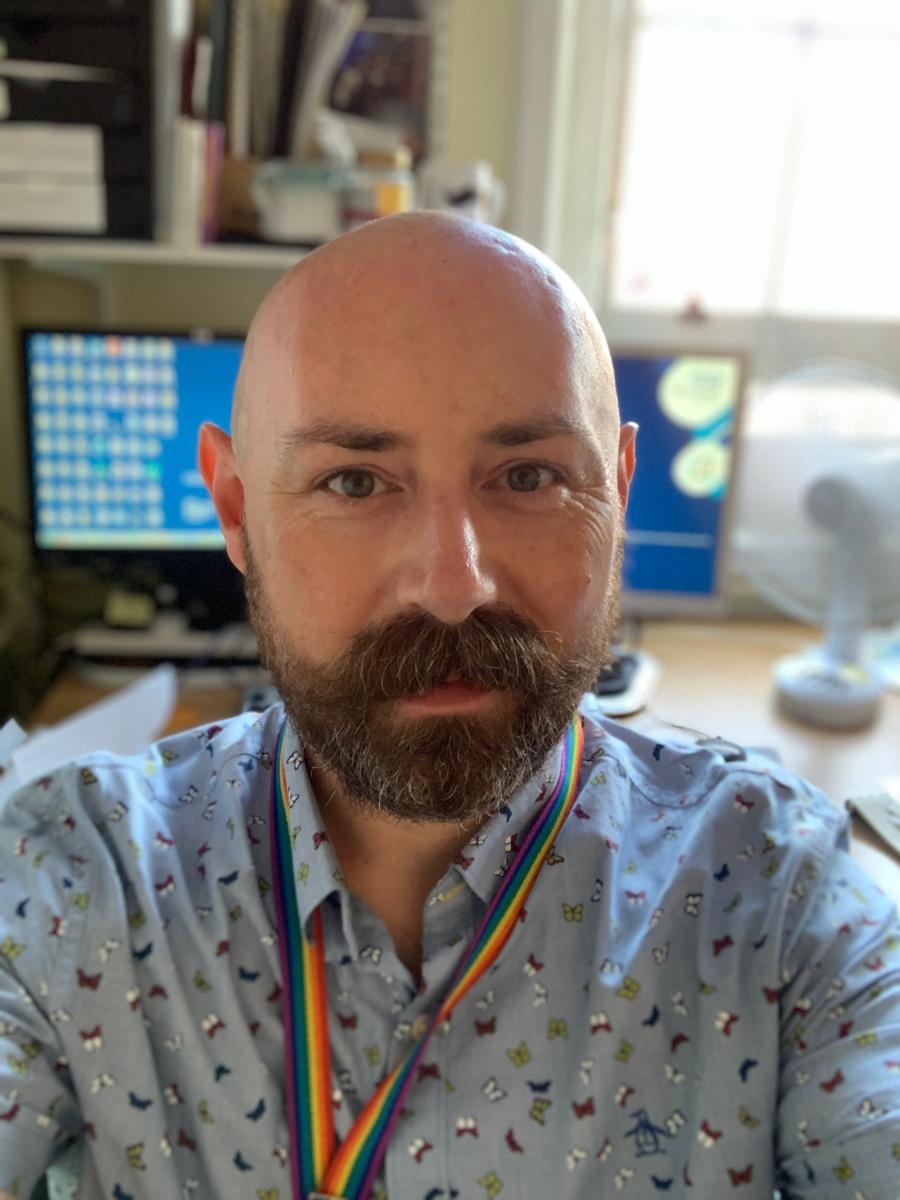Pandemic Pride 2020

In recognition of Pride 2020, Christopher Pinch, Senior Nurse Workforce and Co LGBTQ+ site lead, has written a fascinating and thought provoking blog looking at the origins of the Pride celebration and what we can each do to be active in addressing inequalities within the NHS. Chris also reveals why the rainbow came to be synonymous with the event and the LGBTQ+ community.
June is the month dedicated to rainbows and celebrating LGBTQ+ communities across the world. It’s usually recognised through colourful parades and celebrations across major cities worldwide and this time last year, I was tying the rainbow laces on my boots to join the London Pride parade march, however this year, in these unprecedented times and with COVID-19 social distancing measures, things are a little different.
In February I wrote about the history of the gay rights movement, highlighting some very topical and real examples of where inequality still exists, and for me personally whilst the celebrations will be more sedate than in previous years, I will still be actively celebrating the pride, tenacity and determination of those who fought for societal acceptance and equality in law – a fight that allow me to be me, without apology.
So this is a perfect time to reflect on what Pride, and the symbols associated with it, mean to us and how this translates for our roles within the NHS. Fundamentally, Pride is people coming together in love and friendship to recognise how far the struggle to overcome prejudice towards the LGBTQ+ community has come, what’s left to do and how damaging homophobia has been and still is. The celebration itself originates from the Stonewall riots which took place on 28 June 1969 in New York, when the Stonewall Inn was raided by police for the second time in one week and the gay community felt so aggrieved by their treatment at the hands of the police that they retaliated. From this, was borne an international movement to demand equality. The first Pride event in London took place in June 1972 with just 2,000 people marching through the streets. Last year, more than a million people turned out to celebrate diversity, fight repression and provide encouragement to those who may still face internal conflict about being proud of their authentic self.
So why has the rainbow flag been adapted as the symbol overarching these celebrations, and indeed the entire LGBTQ+ movement? Originally the use of a rainbow flag included a peace symbol and it has been revised several times since its 1978 debut with a design concept by Gilbert Baker, an openly gay activist. The colours represent diversity within society and the LGBTQ+ community, and are often seen as symbol of social equality and individuality. In 2017, Baker updated his design to create a 6-stripe version, which was further adapted by the city of Philadelphia who added a black and brown stripe creating a 8 stripe version, this was to draw attention to issues experienced by people of colour within the LGBTQ+.
Dr Michael Brady was appointed as the National Advisor for LGBT Health at NHS England in April 2019 in addition to his role within Sexual health services and HIV. I have been lucky enough to hear him talk about the inequalities that face LGBTQ+ staff in the workplace and his review of the evidence that LGBTQ+ people have disproportionality worse health outcomes and experiences of healthcare.
There are many things we can do to ensure we address these inequalities within the NHS, and some are much simpler than you may expect - as Dr Brady described it – we should ‘Challenge the Default’.
This includes:
Acknowledging that we all have a part to play in recognising and addressing inequality around us, whether that be for our patients or for our colleagues;
Ensuring we access information that informs our practice - you can’t challenge what you don’t know, so link in and support your local diversity and inclusion networks.
Recognising that visibility and language are really important. Challenge heteronormative and cis-normative language, this is when we assume someone is heterosexual or that their gender identity matches their biological sex. This should be our new “default", when we take histories, when we approach patients and colleagues, when we develop and deliver our plans of care as much as when we are writing our policies, our websites or the information we display. Making assumptions around our colleagues and patients could lead to fear of judgment or reprisal, and we need to encourage everyone in our organisation and care to be their true authentic selves!
As health professionals we need to have zero tolerance for any form of discriminatory behaviour we see, with there being a need to show solidarity challenging poor behaviours. Stonewall the charity which has just celebrated over 30 years of providing support and services for the LGBTQ+ community and employers, call for there to be ‘No Bystanders’, the worst behaviour we walk past is the behaviour we are prepared to accept. This doesn’t mean placing yourself at risk or danger, but we must work towards creating a culture where challenge is encouraged to faciltiate growth.
Even in this time of social distancing and uncertainty, there is still an opportunity and, I would argue, an even greater need to recognise, reflect and support Pride – we just have to be more creative!
Within Barts Health, our LGBTQ+ network is adapting our celebrations with Darwinian flair and we will be joining other organisations to create a host of virtual pride events, culminating with a special virtual pride event on Friday 26 June and then joining global events on Saturday 27 June. Wherever you are and whatever you’re doing to celebrate Pride this year, please take some time to reflect on where we have come from and where we are going, there is always something more to do to support those around us, and most of all, take time to be proud of who you are!
